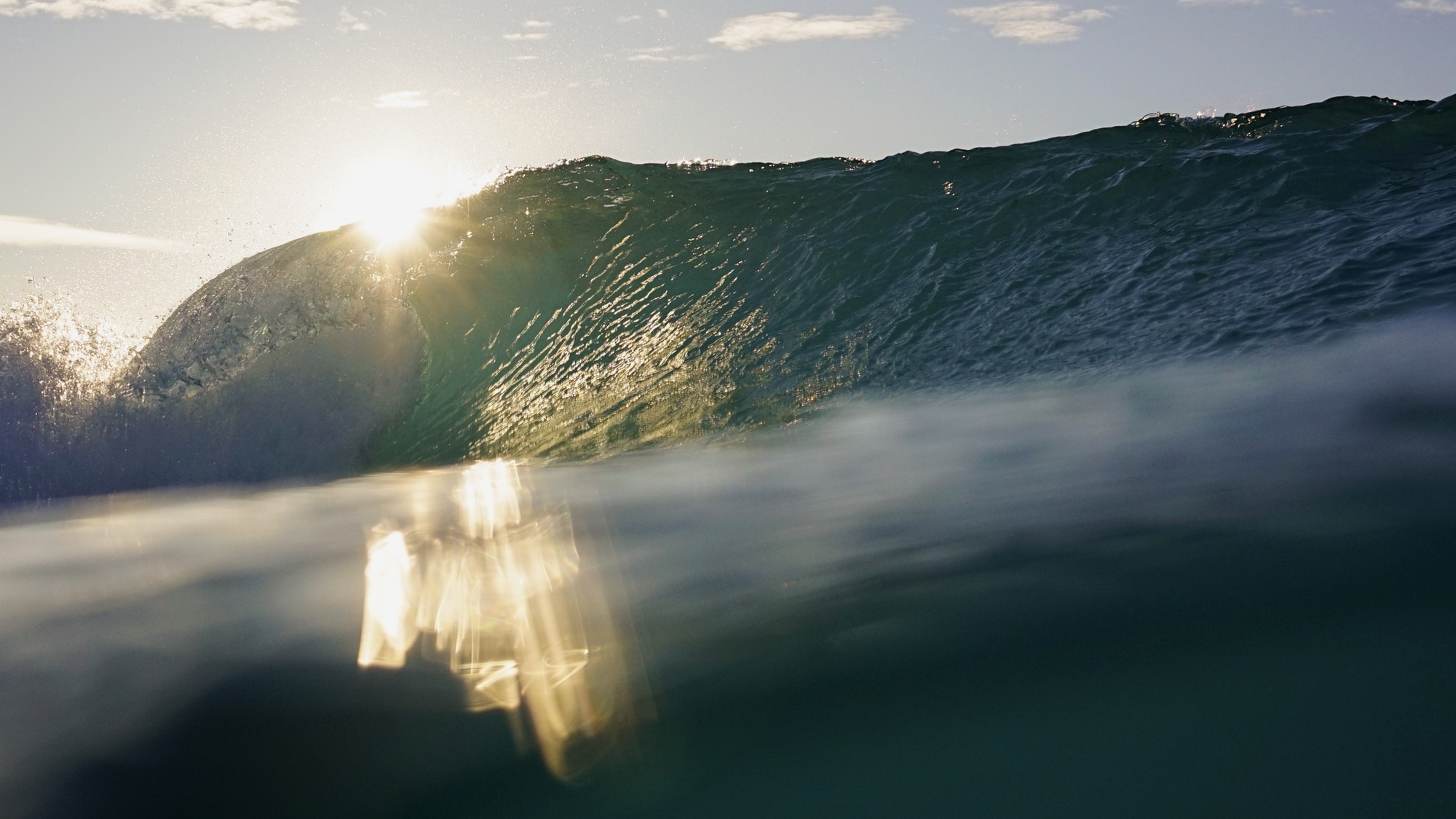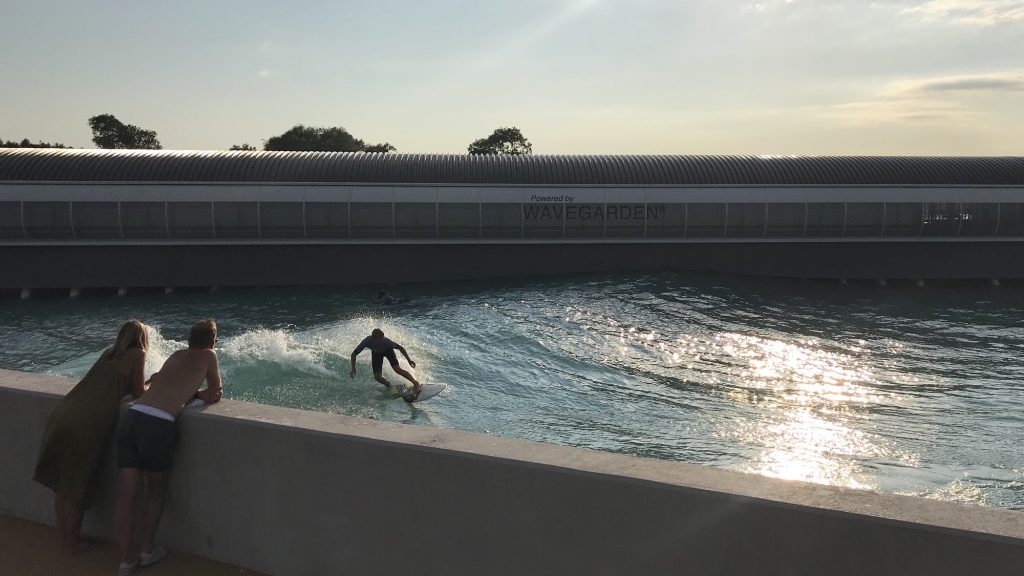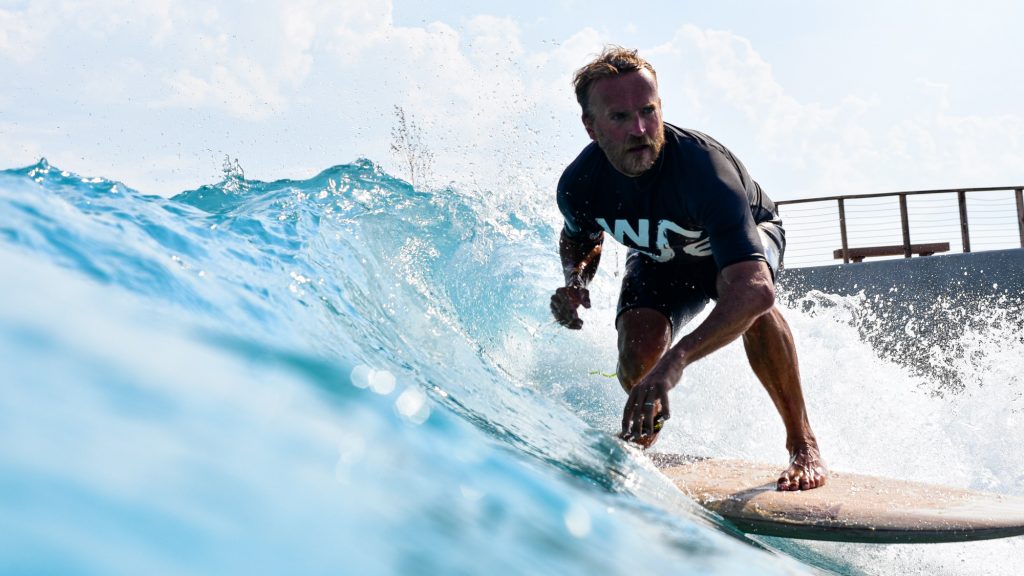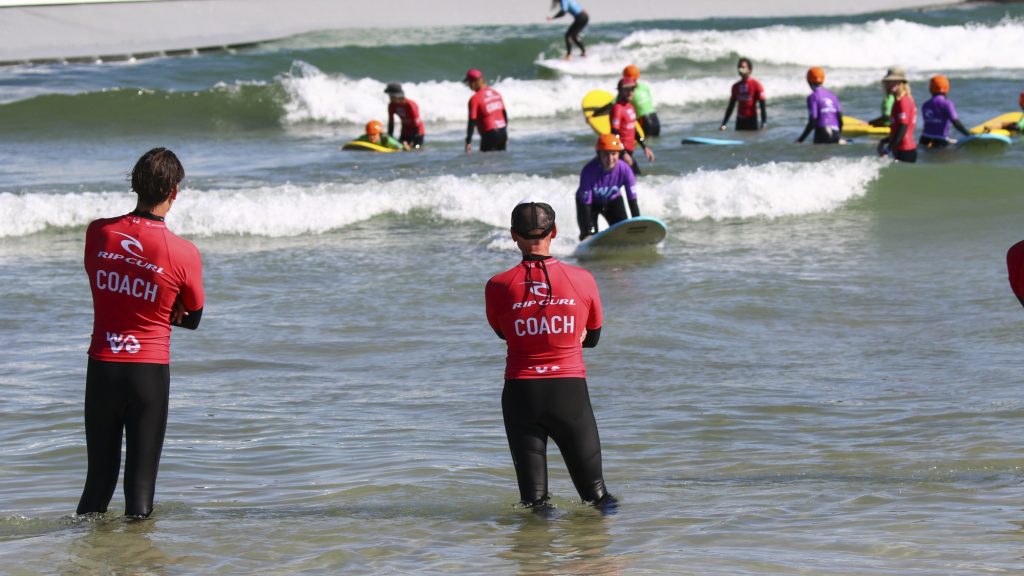Healing properties of surfing at work in Bristol wave pool

Can a wave pool help slough off those layers of sad and make you happy, like, within-your-bones happy? For many of us, a session in the surf is a reset button that puts us in a positive headspace.
Many of us also see it as a way to reaffirm the bigger picture too. Surf pioneer Tom Blake referred to the act of surfing as entering the “Church of the Open Sky,” this from a dude who scratched out the blueprint of surf culture more than 100 years ago. Even if you don’t take surfing as your religion as Blake did, it’s hard to deny that there’s something larger at play affecting our Happy Meter when surfing.
The Wave in Bristol is embracing this broader spectrum and all the positive largeness brought on by the act of riding waves. The surf park is working with the Avon and Wiltshire Mental Health Partnership NHS Trust to run a pilot trial looking at the impact of surfing. England’s favorite wave pool will also work with a group called The Wave Project who helps improve mental wellbeing and resilience for vulnerable children through surf therapy.
“It has taken 10 years to get here and we are so pleased to finally be working with The Wave to run a surf therapy project for children in Bristol,” said Joe Taylor, Founder of The Wave Project. “With the growth of social prescribing across England, this will be a game-changer for improving children’s mental health and wellbeing.”

Even if the therapy work isn’t done at the beach, a wave pool’s ambient ocean noise, the joy of water and the fatigue of being surfed-out are strong enough to bring about many of the surf-related mental and physical health benefits.
Nick Hounsfield from The Wave added that science is now pointing this out, and says that just being around the water helps people be healthier.
“There is a growing body of scientific evidence to support the belief, which many people instinctively have, that spending time near or in the water is good for us,” said Nick. “More and more studies are being carried out to look at how and why being near water has a positive impact on our mental and physical health and wellbeing.”
Research in the area of ‘green health’ started back in the eighties examining the link between human health and the environment with a resulting consensus that being in contact with nature contributes to good physical and mental health. Scientists also began to look at the impact of water environments on human health and an off-shoot of ‘green health’ research emerged called ‘blue health.’

In the last decade, more academic research connected these dots and a team from the Barcelona Institute for Global Health concluded that being in or near blue space (bodies of water) instills positive feelings and a sense of well-being.
Simultaneously and without medical studies, many surf therapy programs popped up on coastlines around the world. Everything from service dogs guiding people into their first waves to Autism-specific surf classes has introduced the joys of surfing to many who otherwise would not have access.
This surf therapy movement from The Wave now brings wellness to those who don’t live near the coast. You can read the entire Blue Report at this link.

The Wave conducted a survey of almost 5,000 respondents (both surfers and non-surfers) in January 2020. Key findings included:
- 75% of surfers say that the mental health benefits of surfing are more important to them than the physical health benefits
- Nearly 50% of non-surfers said that the mental health benefits would be their main driver to try surfing
- Asked to select words that sum up what surfing means to them, 67% of surfers said ‘Happiness’, 52% said ‘Excitement’ and 49% said ‘Nature’
Related Coverage
